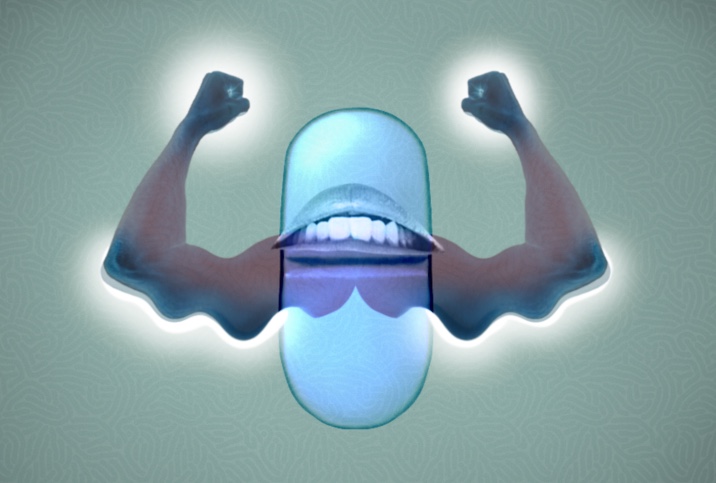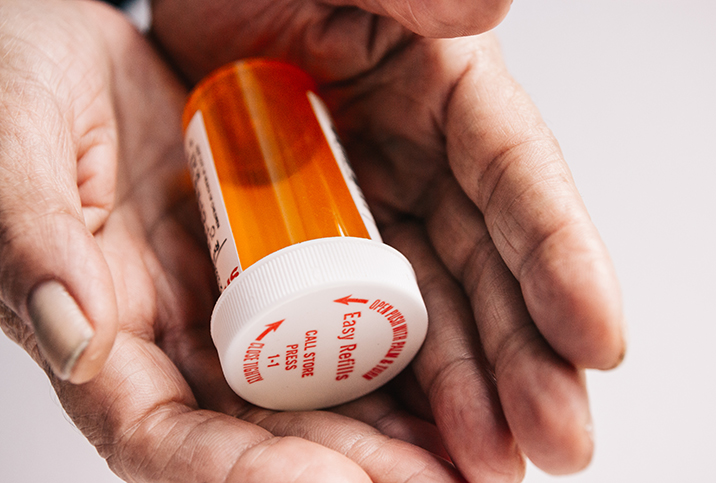What Are Testosterone's Effects on Fertility and Sexual Function?

We often think of testosterone as "the male hormone."
We see it as the secret sauce that makes the Rock so vein-poppingly muscular, the source of male aggression and the fountain from which mighty erections spring.
There's some truth to all that.
Testosterone is indeed responsible for giving males larger muscles, a deeper voice, facial hair and other secondary sexual characteristics. It's also used to help people transitioning from female to male to develop more of those same characteristics.
Women also produce small amounts of testosterone, just as males produce some estrogen, a hormone associated with female sexual characteristics.
We'll get down to the basic level of what testosterone is in the context of reproduction and sexual function, specifically, taking a closer look at how testosterone affects sperm production and fertility as well as erectile function and other aspects of sexual function.
Testosterone's effects on fertility and sperm
We first encounter testosterone in the womb about six weeks after conception. Signals in male bodies ramp up testosterone production in order to begin the process of differentiating the fetus's "bipotential" reproductive structures. Up to that point, those structures could develop into either female or male genitalia.
By seven or eight weeks of gestation, the gonads are distinguishable as testes or ovaries.
Between the time the child is born and adolescence, testosterone mostly takes a back seat. It's present but mostly waits in the wings.
When testosterone finally returns to center stage, though, it certainly makes its presence felt.
At this point, the brain signals the pituitary gland to instruct the testicles to produce more testosterone a—30-fold increase by some estimates. The testicles and penis begin to grow larger, the voice changes, facial hair and larger muscles begin to emerge and, critically, the testicles begin producing sperm.
Knowing all of this, it's perhaps not too surprising that men who are considering testosterone replacement therapy (TRT) sometimes think taking additional testosterone, or exogenous testosterone, might make them more fertile.
Not true.
"When people take testosterone from the outside, as testosterone replacement therapy, the body sees it as a signal that, 'OK, we're good, we can stop signaling to the testicles,'" said Amy Pearlman, M.D., a men's health specialist and co-founder of Prime Institute in Fort Lauderdale, Florida. "So the testicles stop producing testosterone. It can also shut down the signal to the testicles for spermatogenesis; that's the production of sperm."
Pearlman wants people to know that exogenous testosterone can impact most people's ability to have a child. At the very least, it can affect sperm production. Men can father children while they're on testosterone, but it can make the process more difficult.
That's not to say TRT is a no-go for anyone who might want to start a family someday. Men's health specialists such as Pearlman have various strategies to counteract the potential effects of TRT on fertility. For instance, treatments that use human chorionic gonadotropin (hCG) and other hormonal therapies can stimulate spermatogenesis.
Many people simply bank sperm before starting TRT, just in case.
Testosterone and sexual function
It's clear that testosterone is a vital component of male sexual functions. What might be more difficult to break down is exactly where the hormone fits in among the array of systems and processes that all have to function correctly for sex to work like it's designed to work.
"Testosterone is not necessarily a treatment for erectile dysfunction [ED], but it can help people respond better to other therapies," Pearlman said. "I see that all the time in my patients. They come in with ED and I put them on testosterone and the erections improve. We haven't had the studies that exactly show that, but the anecdotal experience with so many patients is it really helps."
The idea is improved testosterone levels alone may not improve ED, but without good testosterone levels, other components also might not work.
"We know in terms of testosterone production's impact on erectile function that it's really difficult for someone with low testosterone to get good erections," Pearlman said. "That's where we see if someone used to respond to Viagra or Cialis and they no longer respond. And if you check their testosterone and it's low, then optimizing their hormones can make them better responders to the pills."
The most recent American Urological Association (AUA) guidelines recommend physicians check men coming in with ED for testosterone for that reason.
Sexual function beyond the erection
Pearlman is quick to point out that getting an erection is only one piece of the sexual puzzle. Testosterone has effects on all kinds of systems and functions.
"[It's] the whole sexual experience: We often focus only on the erections, but hormones are really important for orgasm and ejaculation and the whole sense of pleasure," she said.
In learning about how testosterone works, we can't forget the yin to testosterone's yang: estrogen. Everyone's body produces both hormones. Sexual health and many other aspects of health depend on our body's ability—or our doctor's ability—to carefully calibrate and regulate the balance between the two.
"It's important to note that it's not just 'the male hormone' or 'the female hormone,'" Pearlman said. "I think it's important to emphasize the importance of the hormone that we identify with the other gender or sex. And that's important for cisgender people as well as transgender people, that ratio of testosterone to estrogen."
If you go on TRT, it can prompt your body to convert more testosterone into estrogen, and that can wreak havoc on not only your sexual function but all manner of things.
"If someone's estrogen is too low or too high in the setting of someone being on testosterone, that alone can cause issues," Pearlman said. "When guys come in and I put them on testosterone and they're not feeling optimized or they have issues with ED or mood or libido, I always check their estrogen, because that's the downstream effect of being on testosterone. Some of their testosterone will get converted into estrogen, so oftentimes I'm targeting the estrogen in these guys over the testosterone."
Testosterone takeaways
Perhaps the main point to understand is that while testosterone is a critical piece of the male sexual health puzzle, haphazardly boosting your testosterone levels is not a clear path to better sexual function. It may actively do harm. Potentially, TRT can harm fertility.
Anyone who has questions about their testosterone levels should not hesitate to schedule a visit with a men's health specialist to talk about their symptoms and get a blood workup. At the same time, it's useful to know that wild internet claims about how TRT can instantly give you hard-ons like a porn star or help you start popping out babies are likely to disappoint.
If you're worried about your testosterone levels or any other kind of sexual health issue, telehealth makes it easy to connect with a healthcare professional, many of whom offer same-day video visits. Giddy Telehealth is an easy-to-use online portal that provides access to hundreds of healthcare professionals whose expertise covers the full scope of medical care, including men's health.


















